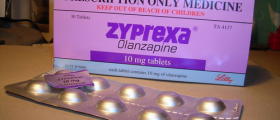
Loss of Appetite
Almost every person has experienced loss of the appetite in the life time. It can be caused by an unpleasant smell or ghastly picture. In such cases, loss of appetite is not considered dangerous and, your appetite will return after some time. However, loss of appetite, especially if it is sudden and unexplained may be a sign of some other condition. Poor appetite can be a consequence of an emotional trauma, depression, stress or some physical disorder or illness, mainly digestive system impairment. If your appetite does not return after a while you may be at risk of sudden weight loss. Loosing weight is a long term process which requires special diet and exercises. Sudden weight loss can significantly reduce your energy levels and weaken your immune system which will further make you prone to diseases and infections.
Treatment
The treatment of poor appetite can be various. In case of severe loss of appetite you should see your doctor. He/she will prescribe medications or suggest additional treatment for the underlying cause. Many people may decide to try an alternative approach which includes natural remedies and herbs which are good for boosting your appetite.
Drugs
A lot of medications can be used to stimulate your appetite. It is recommended to seek advice from you doctor before you start taking any drugs, because you should be examined first in order to find the cause of poor appetite. Your doctor will treat the underlying condition as well as the loss of appetite itself. The most common medications for appetite increasing include are anabolic steroids. Other medications are Megestrol acetate, cyproheptadine, Marinol, dronabinol, mirtazapine, Megace and Megace ES. It is important to follow the exact instructions from your doctor in order to reduce the risk of side effects.
Side Effects
You should be careful when you take any medications because every drug has certain side effects. If you notice any unusual changes in your physical or mental health, call your doctor as soon as possible. Your doctor will recommend a smaller dose or he/she will change the course of the treatment. Common side effects of these medications may include digestive disorders such as sickness, vomiting, diarrhea and constipation. You may also have sleeping disorders and problems with urination. These medications can cause liver function impairment and pain in the bones. You may also feel weak and tired, and you may have pain in the muscles. You can experience mood and behavior changes, such as depression, loss of memory, anxiety and hallucinations. Irregular pulse, high blood pressure and pain in the chest are also side effect of these medications.

















Your thoughts on this
Loading...